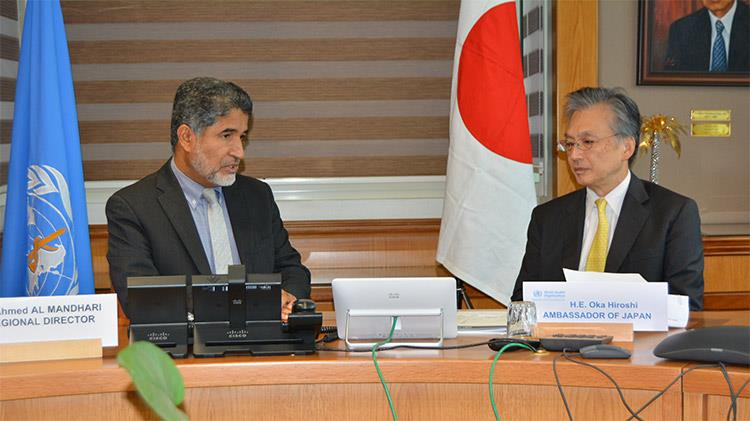
he Olympic torch is currently making its way across Japan in a live-streamed relay – at the time of writing, it had passed through 28 of all 47 prefectures in the country. The Games are scheduled to take place in two months. But whereas you might expect the national mood to be crackling with excitement, things are different, with more and more Japanese people reaching an uncomfortable conclusion: the Games need to be scrapped altogether.
A recent poll shows more than 80% of the public want the Tokyo Olympics to be either cancelled or postponed again, an option the International Olympic Committee has ruled out. As the public see it, the Games are distracting the government from dealing with the Covid crisis head-on. They are also expected to drain medical and financial resources when they are needed most. About 80% of all Covid deaths in Japan have occurred since December. Many fear that the worst is yet to come.
It is true that, with 12,261 deaths, Japan’s record is not as bad as that of Britain, the US or the other G7 countries (though it is considerably worse than many other countries in Asia and Oceania). The problem is that most Japanese people do not attribute this relative success to their political leaders. Public approval of the prime minister, Yoshihide Suga, and his cabinet has dropped to its lowest since he took office last September at 35% (against 43% who disapproved), according to a recent poll. Meanwhile, 63% expressed dissatisfaction at his handling of the pandemic (as opposed to 33% who had a favourable opinion).
The largest urban centres of Japan, including Tokyo, are currently in the third state of emergency since the start of the pandemic, and the second this calendar year; this was initially slated to end on 11 May, but has now been extended until 31 May, with further extensions and even expansions possible. The state of emergency has never been a hard lockdown, with schools, shops and restaurants mostly remaining open, albeit with earlier closing times and other restrictions in place, though larger venues have been more severely controlled.
The Japanese public tend to see these measures as too little, too late. A hard lockdown would not be popular, but the never-ending limbo of repeated soft lockdowns puts off even the most patient and cooperative of people. Unlike in other countries, the root cause of the cycle of denial and delay isn’t a new variant or poor public health infrastructure: it’s the Olympics.
Although Suga insists he has “never put the Olympics first”, it is hard not to see the fact the world will have its eyes on Japan this summer as having an effect. He delays making hard decisions, such as introducing states of emergency. When he finally does make them, he sets the period too short and ends up having to extend it. In the meantime, lockdown measures are starting to grate. Serving alcohol at eateries and bars has been banned, though the commuter trains remain crowded at rush hours. Incomprehensibly, theatres may continue to operate at half-capacity for live performances, whereas large cinemas were ordered to close. The arbitrariness of the measures partly comes from the failure of coordination between the national and prefectural governments, which are both keen to avoid having to take responsibility.
The most damning factor is the spectacular failure of the vaccination programme. With a mere 4.4% of the population getting their first jab to date, Japan is at the very bottom of the OECD rankings – it has yet to even finish inoculating all medical professionals. Suga recently proclaimed that he aimed to finish vaccinating elderly people by the end of July (which would be during the Olympics), but that would require administering a million jabs a day, when the daily rate of doses administered so far is a mere third of that at this point. Japan is rich enough to have procured the vaccines, but it has been sitting on its stockpiles. It is now certain the vast majority will remain unvaccinated and exposed to the risk of infection when the Games begin.
Although there has been a blanket ban on all new entries for foreign nationals, including students, about 90,000 Olympics-related visitors, including some 11,500 Olympians and Paralympians, will be let in. Unless the athletes remain strictly isolated from one another, the Olympic village could easily turn into a land-based version of the Diamond Princess, the infamous cruise-ship that became a Covid “petri dish” last year. The organisers are about to designate 30 hospitals that would have priority access for the athletes, and have recruited 200 doctors and 500 nurses as “volunteers” – at a time when the medical system is already under enormous strain.
Suga seems to think the Games will provide some much needed distraction and relief for the world at the end of the long tunnel that is the pandemic. (He must also have in mind the fact general elections are scheduled for autumn this year.) He has repeatedly claimed the occasion will be “proof that humanity has defeated the virus”. It’s a lofty sentiment that is increasingly contradicted by the pandemic’s development, particularly in the global south, which remains unvaccinated and exposed to new threats in the form of variants.
The IOC vice-president, John Coates, has made the astounding claim the Games can be held even if Tokyo remains under a state of emergency. But creating a televised bubble to beam images of the fast and the strong around the world during a global pandemic – it would be hard to justify this happening anywhere, and Japan is no exception.
Koichi Nakano is a professor of political science at Sophia University, Japan












